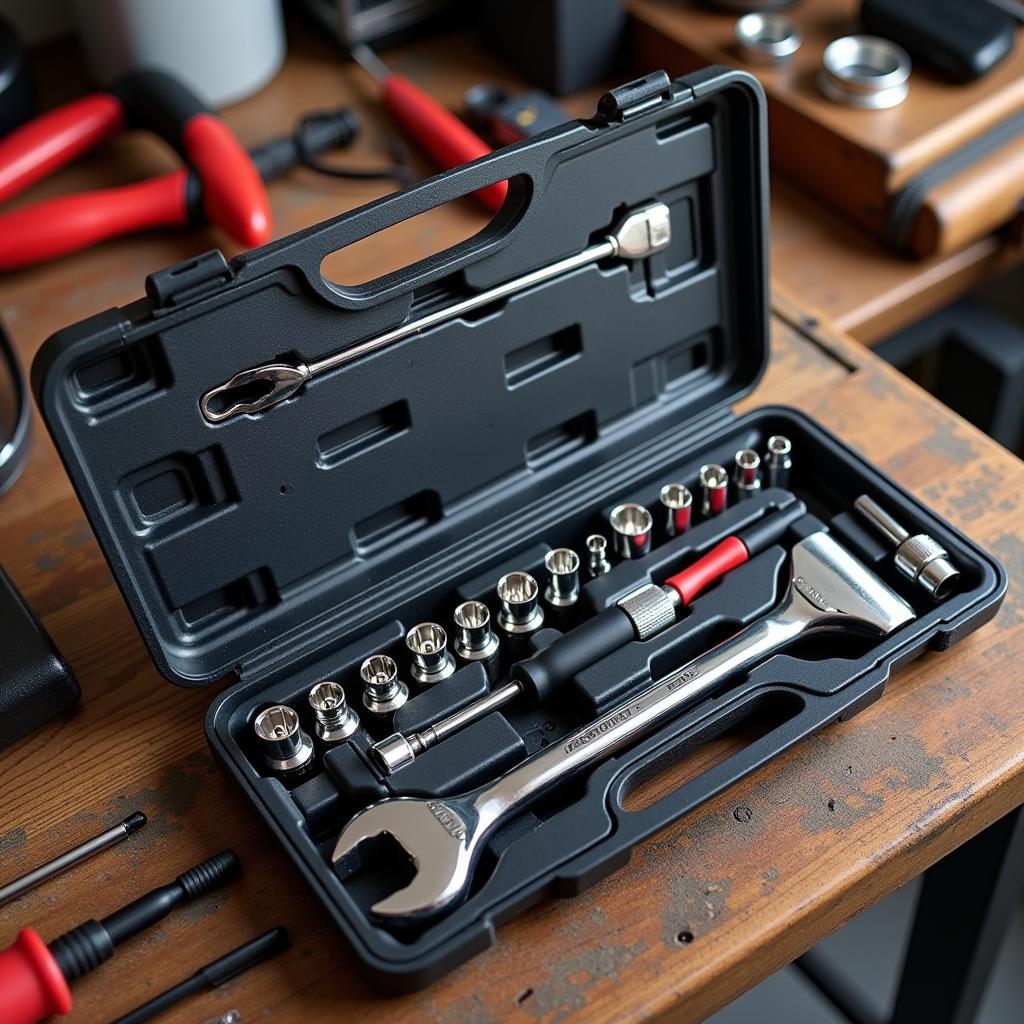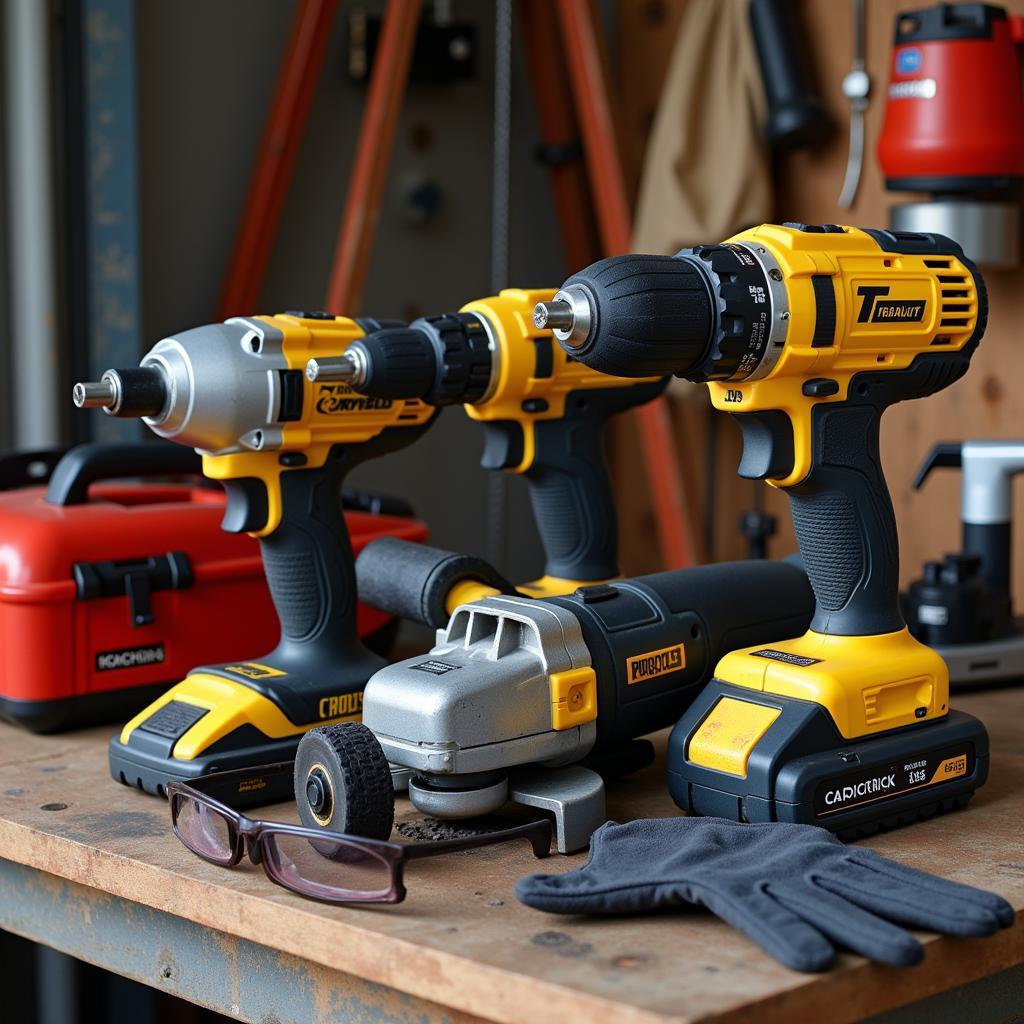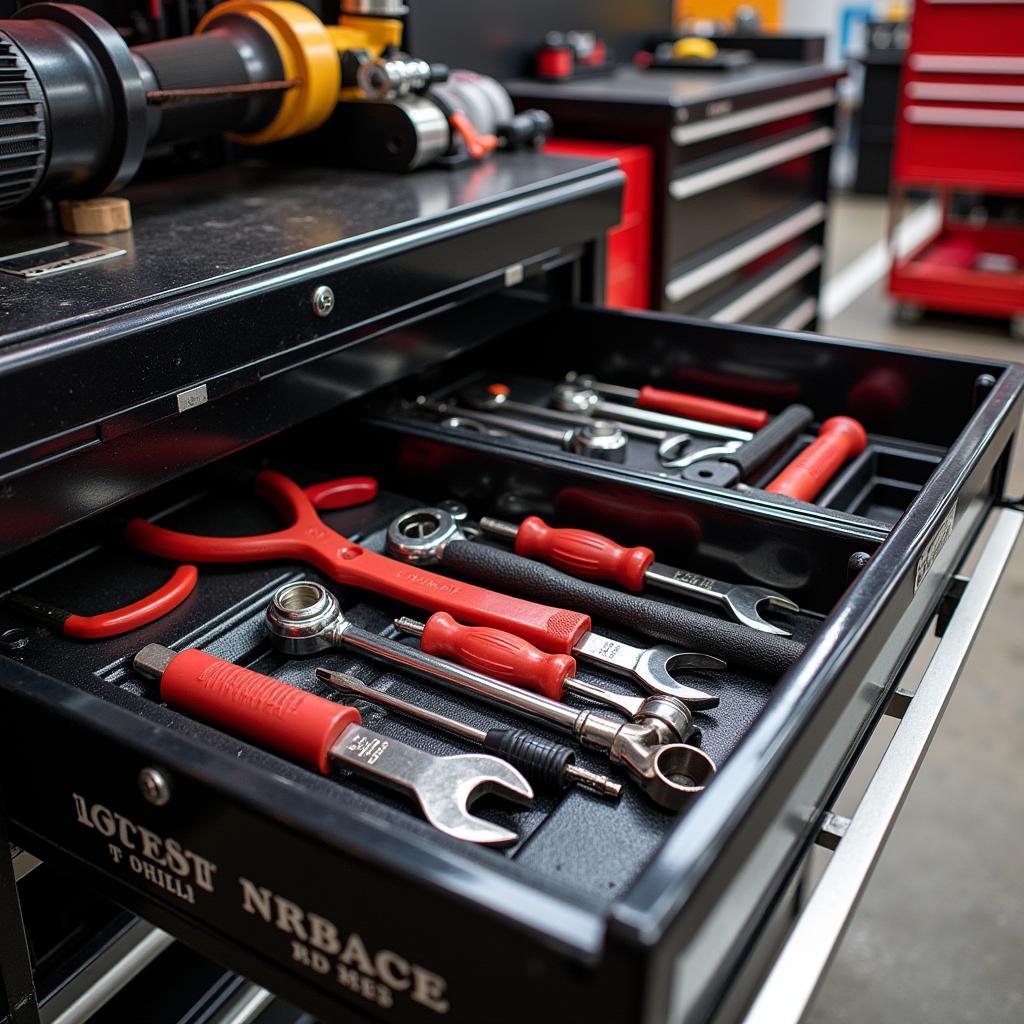Working on your own car can be empowering and save you money. Whether it’s a simple oil change or a more complex repair, having the right tools is essential. This guide will explore every tool you need to confidently tackle basic car maintenance and repairs.  Essential Car Tools for Beginners
Essential Car Tools for Beginners
Essential Hand Tools: The Foundation of Your Car Workshop
Every DIY mechanic needs a solid foundation of hand tools. These are the workhorses of your garage, vital for countless tasks. A quality set of screwdrivers (Phillips and flathead), various sizes of wrenches (both metric and standard), and pliers (including needle-nose and slip-joint) are absolute must-haves. Don’t forget a good hammer and a sturdy set of Allen keys for those hard-to-reach bolts. These tools are the backbone of any car repair, from changing a tire to tightening loose components.
Having the right tools for the job can make the difference between a smooth repair and a frustrating experience. Investing in quality tools will pay off in the long run, saving you time and headaches.
Diagnostic Tools: Unlocking Your Car’s Secrets
Modern cars are complex machines, and understanding what’s happening under the hood requires the right diagnostic tools. A car code reader scan tool is an invaluable asset, allowing you to read and interpret those cryptic trouble codes that illuminate your check engine light. This empowers you to pinpoint issues and even reset the light yourself, potentially saving a trip to the mechanic. Beyond code readers, a multimeter is crucial for testing electrical circuits and diagnosing battery issues. Imagine being able to identify a faulty sensor or a short circuit without relying on a professional!
What tools are needed to take out a car battery? Find out here: tools needed to take out car battery.
Power Tools: Amplifying Your Mechanical Prowess
While hand tools are essential, power tools can significantly speed up many repair jobs. An impact wrench makes quick work of removing stubborn lug nuts, while a cordless drill is indispensable for drilling and fastening. Consider adding a reciprocating saw for cutting through metal or other materials, and a grinder for smoothing rough edges or removing rust. These tools will not only save you time and effort but also allow you to tackle more complex repairs. Remember to prioritize safety and always wear appropriate protective gear when using power tools.
 Essential Power Tools for Car Maintenance
Essential Power Tools for Car Maintenance
Specialty Tools: For Specific Repairs
While the tools mentioned above cover a wide range of general car maintenance, some repairs require specialized equipment. For bodywork, you might need a tool to fix dents on cars. For brake jobs, a brake bleeder kit is a must. Investing in these specialized tools is essential if you plan to tackle these specific types of repairs yourself.
What Other Tools Do I Need to Work on My Car?
Besides the core tools mentioned above, there are several other items that will enhance your DIY car repair experience. These include a good quality jack and jack stands, wheel chocks, a creeper, work gloves, and safety glasses. A well-organized toolbox or tool chest will keep your tools in order and easily accessible. Don’t underestimate the importance of a good work light – proper illumination can make all the difference when working in tight spaces under your car.
“Having the right lighting is essential,” says renowned automotive expert, Michael Davis. “It allows you to see clearly and work safely, preventing mistakes and injuries.”
How Do I Choose the Right Tools for My Car?
Choosing the right tools can be overwhelming, but focusing on quality and understanding your needs will guide you in the right direction. Invest in durable, well-made tools from reputable brands. Research specific tools before purchasing them, reading reviews and comparing prices. Start with a basic set of hand tools and gradually expand your collection as you gain experience and tackle more challenging repairs.
 Well-Organized Tool Chest for Efficient Car Repair
Well-Organized Tool Chest for Efficient Car Repair
Conclusion: Equip Yourself for Automotive Success
Having Every Tool To Work On Your Own Car empowers you to take control of your vehicle’s maintenance and tackle common repairs with confidence. Investing in the right tools, both basic and specialized, will save you money and give you the satisfaction of knowing you can handle many automotive tasks yourself. Remember to prioritize safety, and never attempt a repair beyond your skill level.
FAQs
- What is the most important tool for a beginner mechanic? A good set of hand tools is the foundation of any car repair kit.
- Do I need power tools to work on my car? Power tools can make repairs faster and easier, but they are not always necessary for basic maintenance.
- How do I know which diagnostic tools I need? Start with a basic code reader and multimeter, then expand based on your needs and skill level.
- Where can I find quality car tools? Reputable automotive stores and online retailers offer a wide selection of tools.
- What safety precautions should I take when working on my car? Always use jack stands, wear safety glasses, and disconnect the battery before working on electrical components.
- What are some other helpful resources for DIY car repair? Online forums, repair manuals, and YouTube tutorials can provide valuable guidance.
- How can I stay organized with my car tools? Invest in a good quality tool chest or toolbox with labeled drawers and compartments.
Need help with lawn care tools? Check out lowes lawn care tools. Also, if you’re in Rome and looking for car tools, visit car tools roma.
For further assistance, please contact us via WhatsApp: +1(641)206-8880, Email: [email protected] or visit our office at 910 Cedar Lane, Chicago, IL 60605, USA. Our customer service team is available 24/7.

Leave a Reply